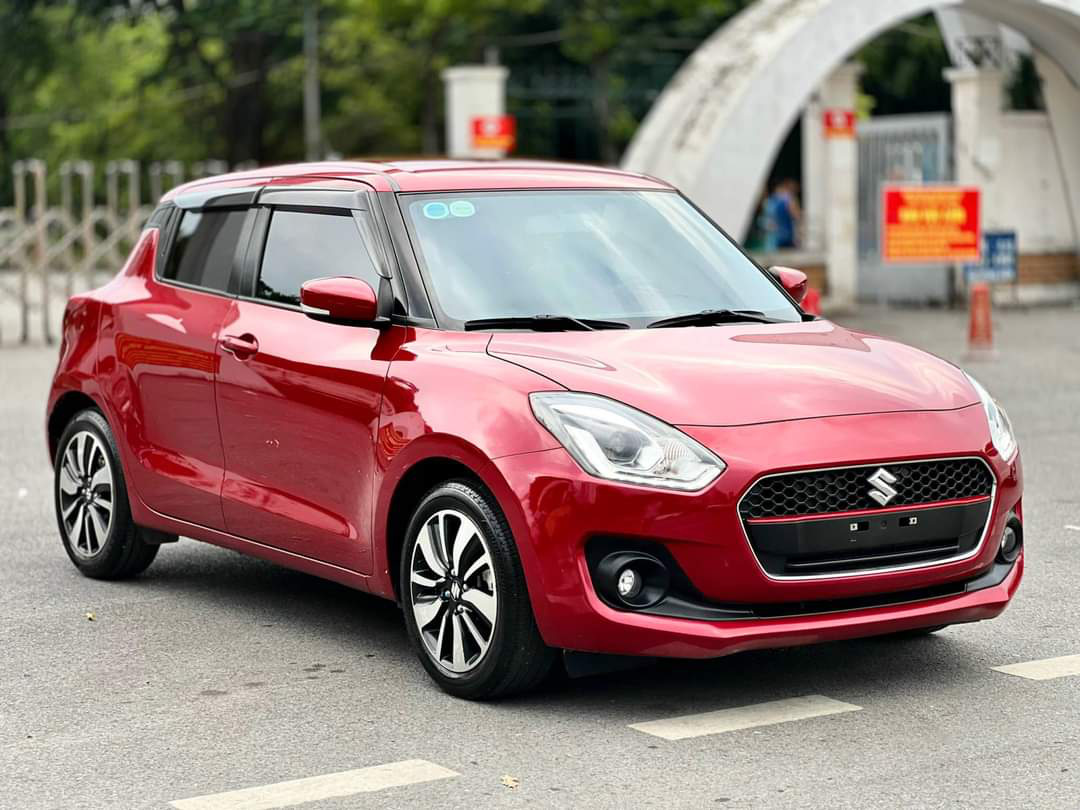
Suzuki Swift models from the Thai factory will stop being imported to Vietnam - Photo: SZK
Suzuki and Subaru car users worry about lack of spare parts
Suzuki is a Japanese automaker that announced it will stop producing cars in Thailand in early June 2024, following a similar move by Subaru recently due to a sharp decline in sales.
In Vietnam, there are currently two car models, Suzuki Swift and Ciaz, imported completely from Thailand. After Suzuki stopped assembling cars in Thailand, Vietnam will likely import cars from other factories. However, if imported from Japan, the price of the car may increase as the import tax on cars from this country is higher.
Although car manufacturers reassure that there are other import sources, many customers using Suzuki passenger cars in Vietnam, especially the Ciaz and Swift models, are worried about the lack of maintenance parts. Regarding this issue, Suzuki Vietnam informed that the company will still provide spare parts to customers for at least 7-10 years. The selling price of spare parts for these two models will not be affected by the discontinuation of the product.
HSBC Bank: Pork prices rise, inflation needs to be monitored
In a recently released report, HSBC said that Vietnam is closely monitoring inflation in the short term. Core inflation in May was anchored at 4.4% year-on-year according to the General Statistics Office, which is close to the State Bank's ceiling of 4.5%.
According to HSBC, while rice prices fell compared to last month, pork prices pushed up food prices in general. Despite falling oil prices and rising electricity prices, Vietnam is still vulnerable to global commodity fluctuations.
Exchange rate developments due to the prolonged high interest rate environment in the US have forced the State Bank to be more proactive in addressing foreign currency pressure, HSBC said.
The State Bank has implemented a number of measures in addition to adjusting the refinancing rate, such as through more flexible open market operations.
While the risk of a short-term refinancing rate hike is increasing, HSBC expects the State Bank to keep policy rates steady as the economic recovery remains in its early stages, a move that requires a delicate balance.

The newly proposed excise tax is affecting beer industry stocks - Illustration photo
Saigon Beer's capitalization "evaporates" several trillion
Share prices of large beer companies like Sabeco have reacted negatively to the new proposal on special consumption tax.
Specifically, at the end of the session on June 14, Sabeco's SAB shares fell 3.35% to VND63,400 per share. With the decrease in share price, the capitalization of Saigon Beer Company decreased by more than VND2,800 billion, to VND81,314 billion.
Previously, this stock had many positive sessions of increase due to investors' expectations of peak summer beer consumption along with Euro 2024.
However, the Ministry of Finance recently submitted a draft amendment to the Law on Special Consumption Tax to the Government. The Ministry proposed taxing all alcoholic beverages, fermented foods from fruits, cereals, and beverages mixed with food alcohol.
Accordingly, two options were proposed, but the ministry leaned towards the option of imposing an 80% tax on alcohol with an alcohol content of 20 degrees or more in 2026, gradually increasing to 100% in 2030; alcohol with an alcohol content of less than 20 degrees is subject to a 50% tax, then increasing to a maximum of 70%; beer of all kinds also increases gradually, from 80% to 100%.
Be careful of infection and multiple organ failure due to scrub typhus.
Information from the Central Hospital for Tropical Diseases said that the hospital regularly receives and treats cases of scrub typhus (infection with Rickettsia bacteria transmitted from scabies), often in severe stages, with multiple organ failure, making resuscitation treatment very difficult and expensive.
Recently, the hospital also admitted a female patient (69 years old, in Phu Xuyen, Hanoi) who was hospitalized in a state of septic shock and multiple organ failure due to scrub typhus. A week before being hospitalized, the patient had a fever and severe fatigue, no cough, no difficulty breathing, and self-treatment at home did not help.
The patient was treated at Hanoi Medical University Hospital. After 2 days, his condition improved slowly, his respiratory condition continued to worsen, and he had severe blood acidosis. He was transferred to the Central Hospital for Tropical Diseases in a state of septic shock, multiple organ failure, and was intubated and put on a ventilator.
During treatment, the patient was diagnosed with septic shock, pneumonia with pleural effusion due to Rickettsia, acute renal failure, heart failure, atrial fibrillation. The patient's condition was very serious and required maintenance of vasopressors (blood pressure medications), antibiotics, and continuous dialysis treatment.
After 5 days of treatment, the patient's condition showed clear signs of improvement, organs gradually recovered, and the patient was able to remove the breathing tube to breathe on his own.
MSc. Dong Phu Khiem, deputy head of the intensive care unit, said that tick fever is a disease transmitted to humans through the intermediate insect mite larvae. People can be bitten while clearing fields for farming, sitting, or lying on the grass...
At first, at the site of the mite bite, there is a pea-sized, painless blister that the patient often does not notice; after an incubation period of 8-12 days, the disease begins with symptoms of continuous high fever, headache, and muscle aches.
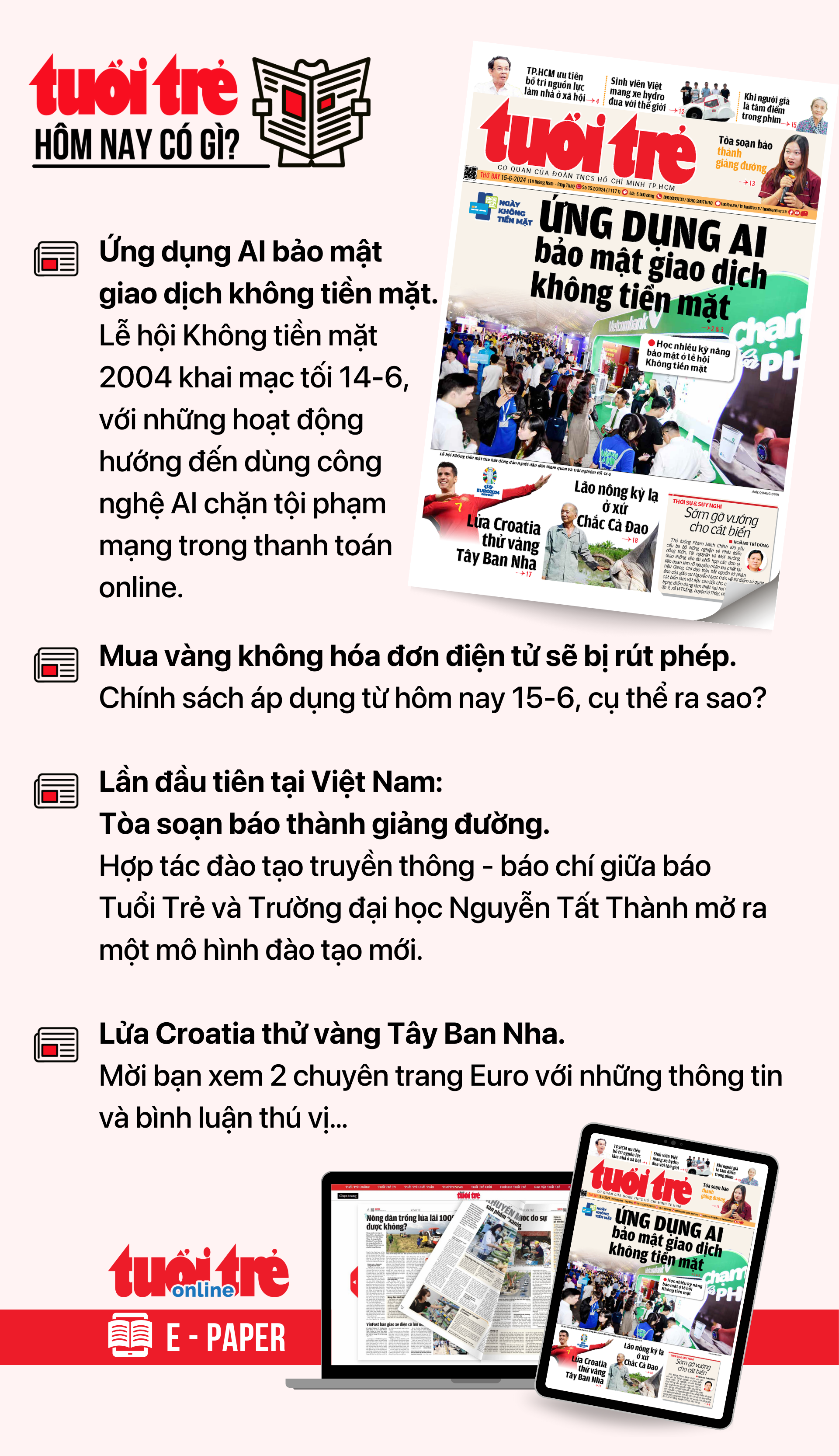
Notable news on Tuoi Tre daily newspaper on June 15. To read Tuoi Tre printed newspaper E-paper version, please register for Tuoi Tre Sao HERE
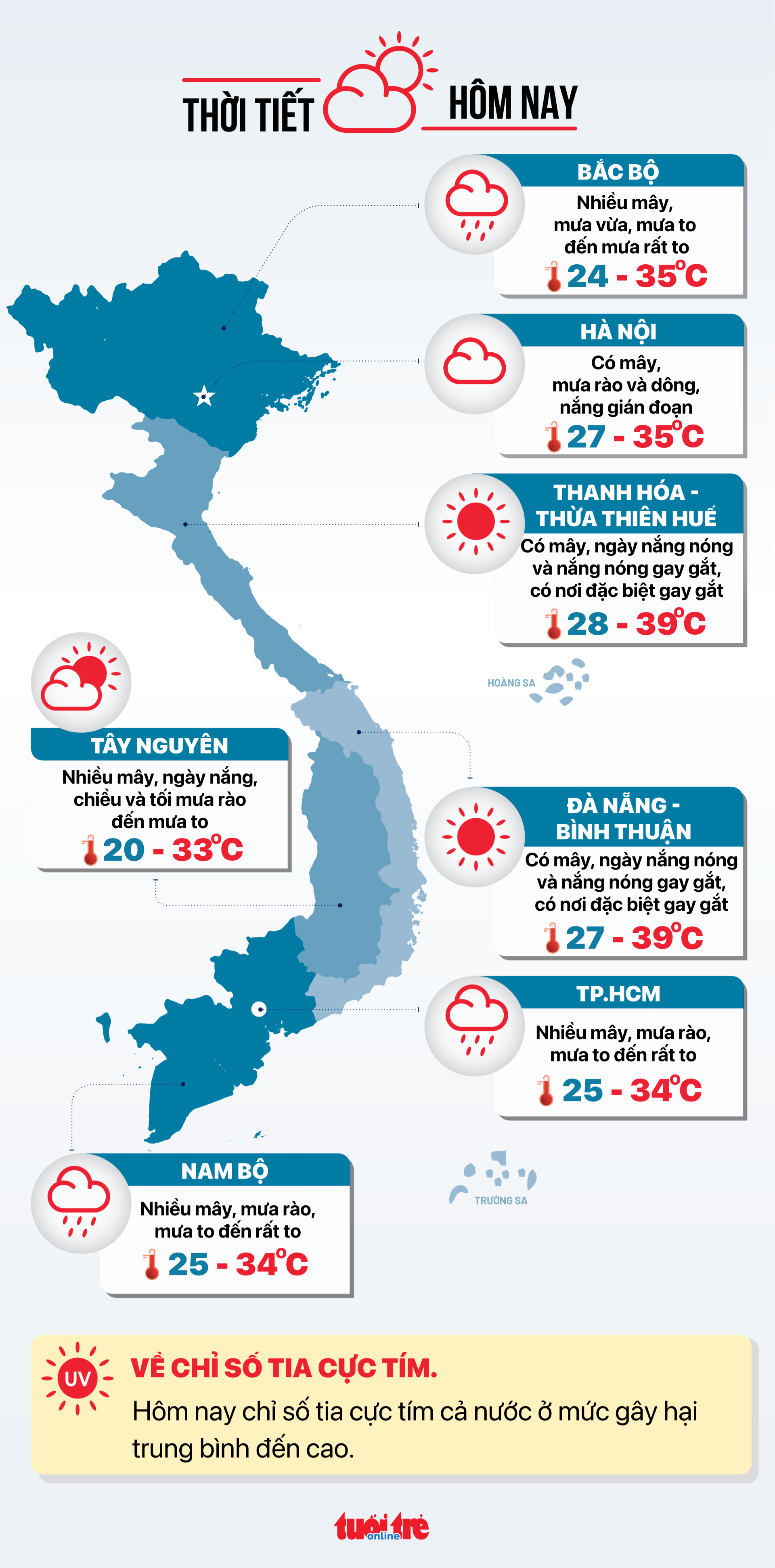
Weather news today June 15 - Graphics: NGOC THANH
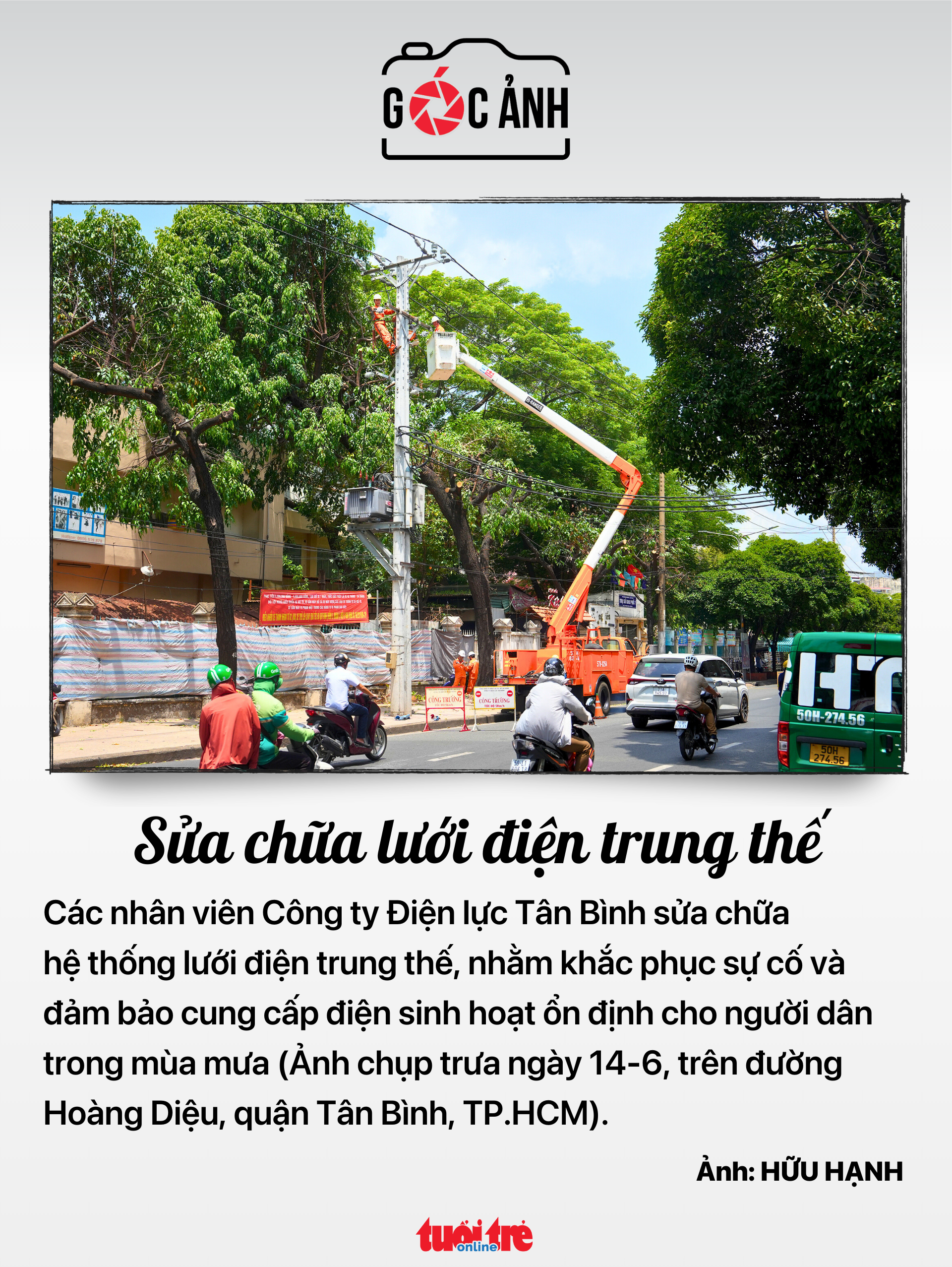
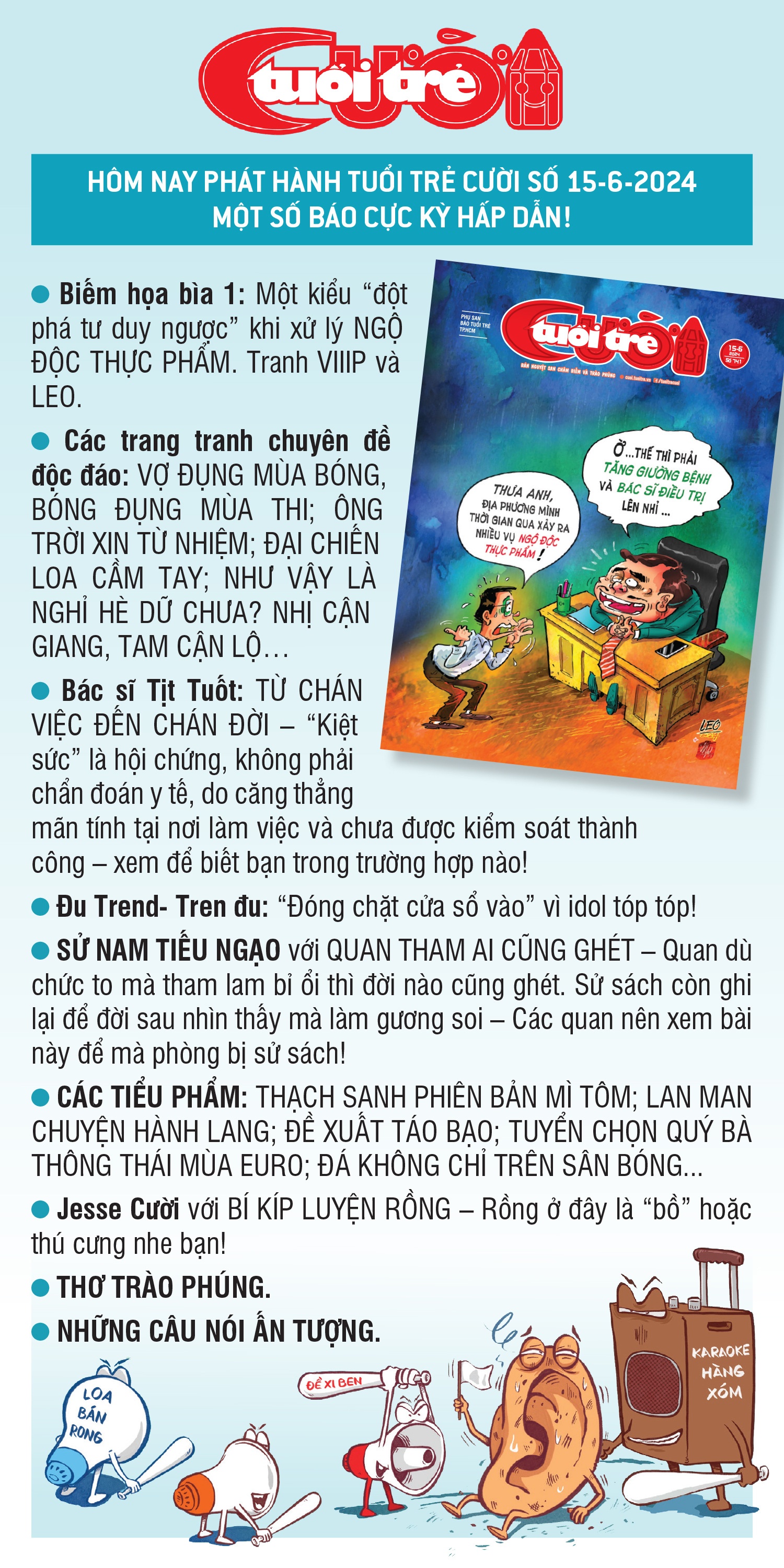
Source: https://tuoitre.vn/tin-tuc-sang-15-6-von-hoa-hang-bia-sai-gon-boc-hoi-vai-nghin-ti-can-than-voi-sot-mo-20240614221327147.htm





![[Photo] Buddha's Birthday 2025: Honoring the message of love, wisdom, and tolerance](https://vphoto.vietnam.vn/thumb/1200x675/vietnam/resource/IMAGE/2025/5/12/8cd2a70beb264374b41fc5d36add6c3d)

![[Photo] Prime Minister Pham Minh Chinh starts construction of vital highway through Thai Binh and Nam Dinh](https://vphoto.vietnam.vn/thumb/1200x675/vietnam/resource/IMAGE/2025/5/12/52d98584ccea4c8dbf7c7f7484433af5)



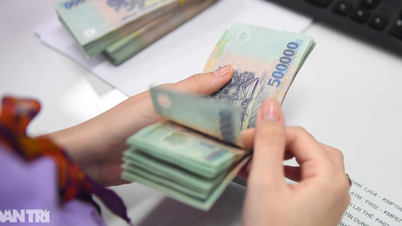

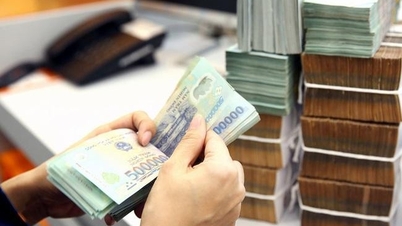



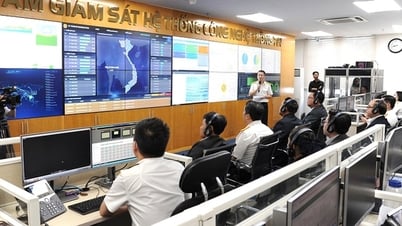

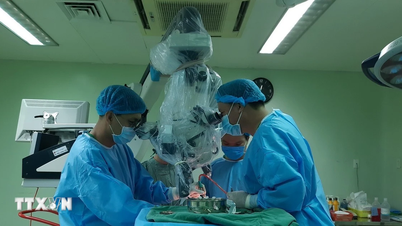

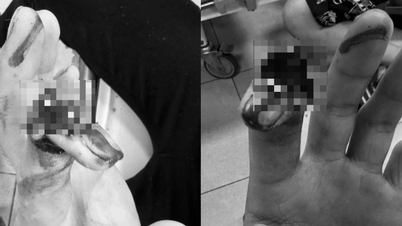

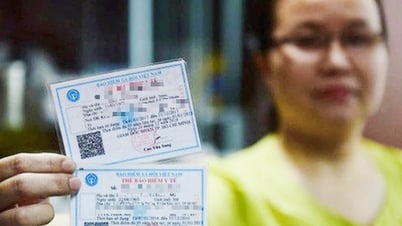









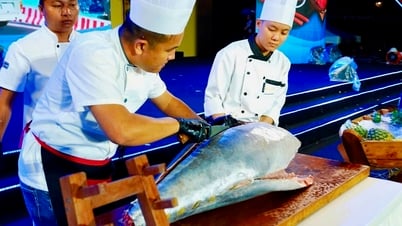

![[Photo] General Secretary To Lam meets and expresses gratitude to Vietnam's Belarusian friends](https://vphoto.vietnam.vn/thumb/1200x675/vietnam/resource/IMAGE/2025/5/11/c515ee2054c54a87aa8a7cb520f2fa6e)













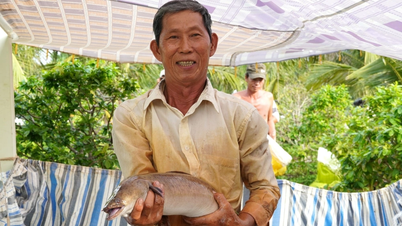




























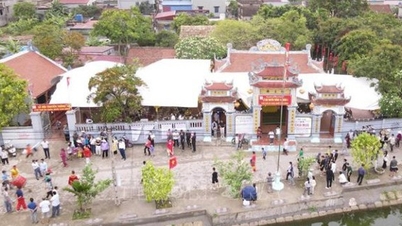











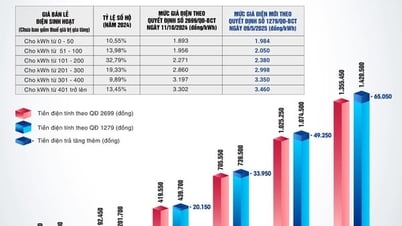











Comment (0)